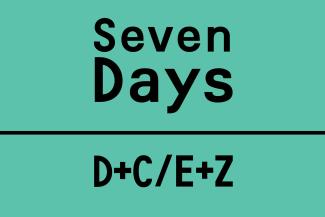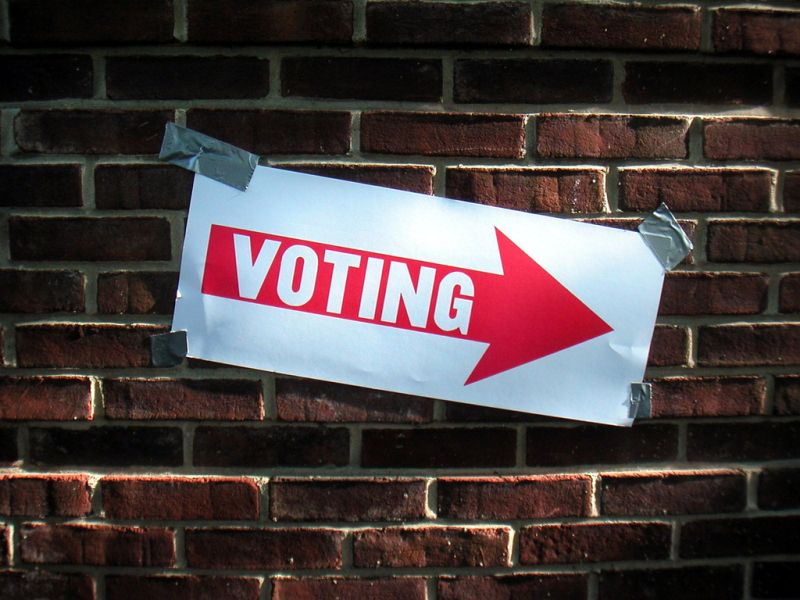In brief
News of the week

Burundi vote neither free nor fair
The parliamentary elections in Burundi on Monday were neither free nor fair. According to UN spokesman Farhan Haq, UN observers noticed “media-freedom restrictions” and other “violations of human rights and fundamental freedoms”. There were reports of violence and explosions. The opposition boycotted the election. Results were expected before the end of the week.
The USA has suspended several security assistance programmes with Burundi because of abuses committed by police during protests and the government’s decision to proceed with the parliamentary elections in spite of civic unrest.
A presidential vote is scheduled for July 15. President Pierre Nkurunziza’s decision to run for a third term in office triggered the country’s worst political crisis since its civil war ended a decade ago. Dozens have been killed and about 140,000 people have fled the country. The constitution only allows two terms.
Sources: Reuters, VOA
Egypt’s chief prosecutor killed in bomb attack
Hisham Barakat, Egypt’s prosecutor general, has been assassinated in a bomb attack. At least three other persons were killed as well, and several people were wounded, according to media reports. Barakat was involved in numerous trials against Islamists since the ouster of President Mohammed Morsi in 2013. He and hundreds of other Muslim Brothers have since been sentenced to death or life imprisonment. Barakat’s murder was the first assassination of a senior government official in Egypt in a quarter-century.
At Barakat’s funeral on Tuesday, President Abdel-Fattah al-Sissi vowed to accelerate the crackdown on extremists. His troops, however, are struggling to get a grip on ISIS insurgents in Sinai, where fighting is escalating. In view of brutal repression, some former followers of the Muslim Brothers are joining jihadi groups.
Sources: AP, BBC
USA and Cuba restore diplomatic relations
The USA and Cuba are re-establishing their diplomatic relations after more than half a century. They have agreed to formally restore ties on 20 July. Embassies will reopen at that time or shortly after. Cuba’s government has stated that to normalise all relations, the USA must lift its economic embargo and return the naval base at Guantanamo Bay. US President Barack Obama has relaxed several restrictions on trade and travel, but many are still in place and can only be removed by Congress. So far, the conservative leadership in Congress refuses to pass legislation that would fully end the 53-year-old embargo. Obama and Cuba’s President Raúl Castro first announced in December that they planned to re-open embassies and normalise relations. The agreement included a swap of prisoners.
Sources: CNN, Reuters
BRAC leader gets World Food Prize
Sir Fazle Hasan Abed is the winner of this year’s World Food Prize. He is the founder and leader of BRAC, a huge non-governmental organisation in Bangladesh. Abed started BRAC after the country’s liberation war of 1971. The organisation specialises in rural development, grass root empowerment and gender equality. Its tools include vocational training, microfinance and health-care services.
BRAC has an effective and well-managed presence in so many villages of Bangladesh that some consider it to be more important or even more powerful than the government. One reason the organisation could expand fast, was that Bangladesh is a very densely populated country with a rather homogenous culture. About 90 % of the people are Muslim, and even more speak Bengali. Using bicycles, branch officers can reach masses of people, and what works in one village, can normally be replicated in the next without great difficulty.
Today, BRAC is active in Bangladesh and 10 other countries in Asia, Africa and the Caribbean. The BRAC website states: “Our work now touches the lives of an estimated 135 million people, with staff and BRAC-trained entrepreneurs numbering in the hundreds of thousands.”
The World Food Prize is worth $ 250,000. It is awarded by the Iowa-based World Food Prize Foundation. Sir Fazle was made a knight by the British crown in 2010. Before returning to his home country to found BRAC, he was a manager for a multinational corporation.
Sources: Dhaka Tribune, www.brac.net
Ebola is back in Liberia
Seven weeks after Liberia was declared free of Ebola, the virus is back in the country. A 17 year old man died of the decease, and two more people have newly been tested positive for Ebola. The three infected people all live in the village of Nedowein, about 50 km from the capital Monrovia.
Officials are now investigating whether the disease had spread through animals. According to Liberia’s Ebola task force, the three villagers “have a history of having had dog meat together”. Dog meat is commonly eaten in Liberia.
Since Sunday Liberian authorities were monitoring about 175 people who have been in contact with the 17-year-old Ebola victim to contain a new outbreak.
More than 11,200 people have died since last year in the worst ever outbreak of Ebola, nearly all of them in the three neighbouring countries of Liberia, Sierra Leone and Guinea.
Liberia was the worst-hit, with more than 4,800 people dying, but was declared Ebola-free by the World Health Organization on 9 May after 42 days passed with no new infections. In Sierra Leone and Guinea there have continuously been new infections, with 20 new cases reported at the end of June.
Sources: Reuters, tagesschau.de
AI campaign for freedom of D+C contributor
D+C author and civil-society activist Djeralar Miankeol went on trial in Chad on 30 June. The verdict is expected to be announced on 7 July. Amensty International considers him a prisoner of conscience. The internationa human-rights organisation asks all concerned to write immediately in French, English or their own language to authorities in Chad to urge them to
- release Djeralar Miankeol immediately and unconditionally;
- ensure that he is not tortured or otherwise ill-treated and has access to a lawyer of his choice, his family and any medical attention he may require;
- to end all harassment of him and all other human rights activists and defenders in Chad.
AI indicates the address of Mahamat Issa Halikim, the minister of human rights: BP 456, N’Djamena – Republic of Tchad. The e-mail address is: coofoui@yahoo.fr
Djeralar's recent D+C publication dealt with conflicts between farmers and herders:
Source: Amnesty Interantional: https://www.amnesty.org/en/documents/afr20/2006/2015/en/
These items were compiled by Katja Dombrowski, Hans Dembowski and Sabine Balk on the basis of international media coverage.











